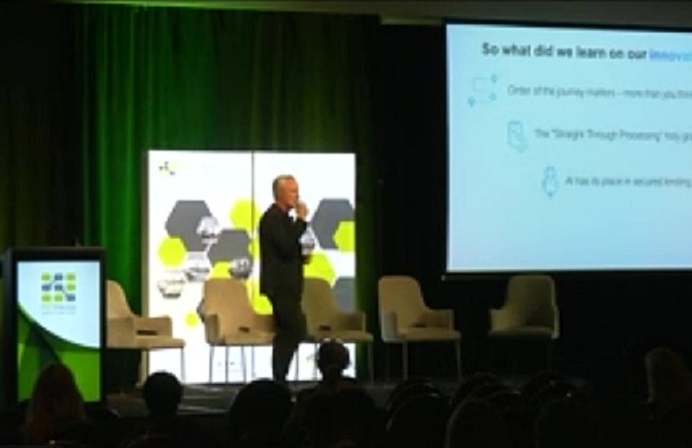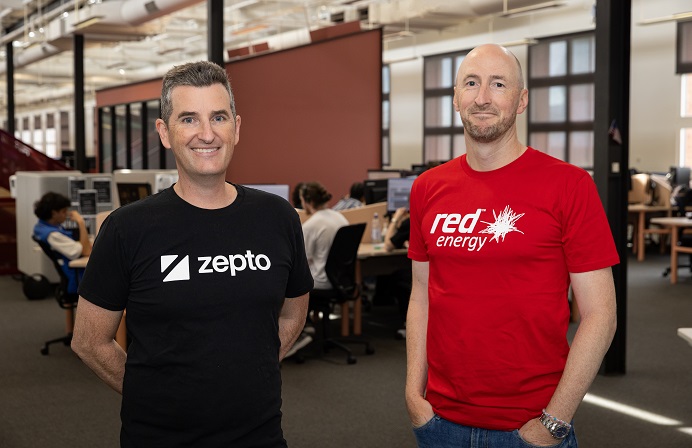
As artificial intelligence (AI) rapidly inserts itself into key parts of the lending application process, Andrew Walker, a former Westpac/BT Group senior executive and current chief executive and co-founder of neolender Nano, warns it should play “no part whatsoever” in decisioning.
“If anyone tells you that they have an AI decisioning platform that’s in secured lending, you can tell them they’re an idiot and feel confident; AI has no place in secured lending decisioning,” Walker said at FST’s Future of Financial Services, New Zealand 2023 conference.
“You do not want a machine following anything other than a rule set.”
He warned that enabling full automation at this critical stage could draw the ire of credit ratings houses, and lead to a downgrading of an organisation’s credit rating.
“If you do [pursue AI in the decisioning process], your treasury guy is going to look at the loans approved, and say ‘I need to turn this into an RMBS [residential mortgage-backed securities] issue and get it off my balance sheet’.”
“They’re going to go to Standard and Poor’s (S&P), who’ll do due diligence on this process and ask to show them how this loan was underwritten and the rules followed.”
Admitting to S&P that “an AI engine” performed this decisioning, Walker said, is all but guaranteed to lose a lender’s “AAA rating”.
“They’re going to put you in the big ‘unknown’, [your] bank will have all these loans on the balance sheet… and the whole thing is going to fall over.”
He stressed, however, that AI has proved itself an almost indispensable addition to “all other parts of the lending process”, with Nano – once a neolender and now entirely focused on its SaaS platform – embedding intelligent automation technologies throughout its end-to-end lending platform’s processes.
He added that, of the $600 million written by Nano’s B2C business – prior to the jettisoning of its lending arm earlier this year – “about 18 per cent was executed as a straight through process (STP)”.
“No human being saw it; no one touched it,” he said.
“A platform ingested the data, Open Banking rails did the income, did the expenses, did the responsible lending classification, did the credit, did the IDV [identity verification], AML/CTF, and KYC checks, approved the loan, triggered a settlement journey, created the loan documents, emailed the loan documents to the customer, who DocuSigned and sent it back – this all happened automatically.”
“[We’re] the only one in the world that’s managed to achieve it.”
At its fastest, Walker said, the whole process takes “eight minutes and 43 seconds” to full underwritten approval. This is against an average time globally of two and a half weeks.
STP a happy ‘accident’ for Nano
Walker admitted that this highly successful STP capability was, at its final stages of deployment, delivered through a happy accident.
After a six-week debate over whether to “switch on” STP – a capability which enables automated end-to-end processing, and one which many techs within Nano, and Walker himself, believed was ready to go live – the capability was unexpectedly found to be on.
“One day, by complete accident, our chief innovation officer [CIO] was doing some code cleanup and switched on the STP; we didn’t know.”
“Suddenly, our loan book seemed to be growing faster than we thought it was going to be”, with, he said, 50 loans approved in the same day and only three verified by a human within the loans team.
”We’d been running with the fully automated process for about ten days before we’d realised it was going.
“We then hurriedly back-tested everything and, guess what – it works, no problem!
“Frankly,” Walker joked, “as an aside, we don’t do that anymore.”
He said an important lesson was learned through this innovation experience.
“The key thing there is, as you go on your innovation journeys in mortgage origination, it’s really important to know that it’s not a Boolean choice. Automation is not Boolean – it’s not either fully automated or fully broken.
“There are steps on the way through; it’s a sliding scale. The more complex the loan, the less automation you’re going to get.”
He added: “What we’ve built – and I’m going to be very specific with my language – is an ‘artificially’ intelligent process and decisioning engine. And I purposely don’t want to call it ‘artificial intelligence’.
“It is that way because it mimics human behaviour and mimics human decisioning.”
NZ not ready for STP
For a process heavily dependent on open data, and with Open Banking still at least a year away from roll out in New Zealand, Walker said there is, currently, “zero level” of STP possible in the local financial services industry.
“You need to mature your open banking rail system,” he said.
“The only thing that’s stopping it is the ability for a platform like ours to be able to automatically ingest the data from the bank’s scrape or Open Banking rail dataset.”
As a result, he added, New Zealand “won’t get any STP until maybe November next year”.
“When [STP] is there, it’ll be the same stats that you have in the UK, the same stats that you’ve got in Australia, in Canada, and everywhere else.
“What’s holding things back is the regulatory framework.”





